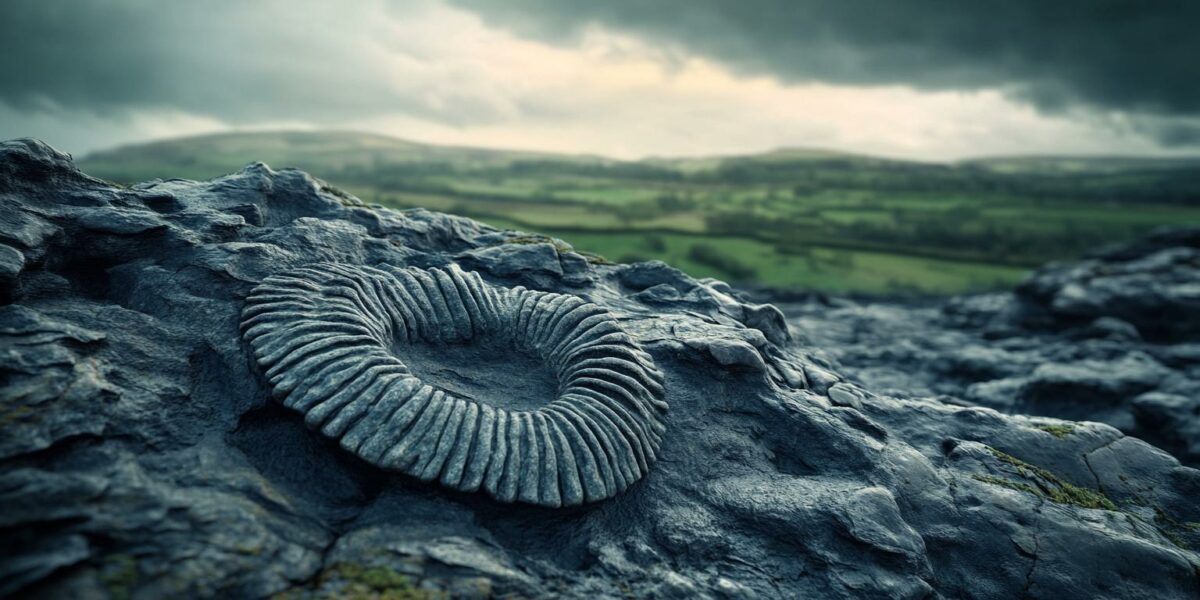Tropical Climates of Millions of Years Ago
Millions of years have passed since the UK and Ireland experienced a tropical climate. Our recent study reveals that 26 million years ago, winter temperatures averaged more than 18°C. This temperature is similar to today’s summer average, showcasing a dramatic climatic shift over millennia.
Delving into ancient rocks, researchers can peel back time layers. Fossils within these rocks provide critical insights into past climates. The study focused on periods between 33 and 20 million years ago, revealing that carbon dioxide levels were akin to those expected in the coming decades.
During this prehistoric period, Antarctica had glaciers, but Greenland remained ice-free. This scenario mirrors potential future conditions if current climate trends continue, making these ancient climate patterns highly relevant for today’s understanding.
Utilizing data from 25 locations, scientists analyzed 82 pollen collections. These fossilized plant pollens, trapped in time, offer a detailed reconstruction of past climates. As pollen varies through sediment layers, it maps out the climatic changes over millions of years.
Implications for Future Climate
By applying statistical models, researchers estimated various climate attributes such as mean annual temperature and precipitation. Findings indicated an average winter temperature of over 18°C, classifying the region as tropical during that era.
Summer temperatures then averaged 25°C, accompanied by annual rainfall between 1,100–1,400mm. This warmer and wetter climate aligns with projections for future greenhouse gas concentration levels.
Examining a time when Greenland lacked ice provides a glimpse into future scenarios. Should Greenland’s ice sheet disappear, similar tropical conditions might emerge, challenging the notion of a paradisiacal future.
The potential consequences are alarming:
- Global sea levels could rise by up to 7 meters, causing widespread coastal flooding.
- Disruption of ocean currents due to freshwater influx, leading to unpredictable weather patterns.
- Adverse impacts on agricultural productivity, exacerbating food security concerns.
Lessons from the Fossil Record
The fossil record serves as a crucial tool for understanding past climates. Fossilized pollen grains, frozen in time, provide a glimpse into ancient ecosystems and climate conditions. These findings underscore the importance of historical climate data in predicting future trends.
Rainfall records from the past suggest that future precipitation rates could exceed 1.4 meters annually. Such extreme weather conditions would have profound implications for agriculture and food security in the UK and Ireland.
Human civilization has thrived in relatively stable climates. However, lessons from Earth’s climatic history indicate that we must prepare for more volatile and extreme weather conditions in the future.
The insights gained from studying ancient climates highlight the urgency of addressing contemporary climate challenges. By understanding the past, we can better anticipate and adapt to future changes.
Adapting to a Changing Climate
With the potential for dramatic shifts in climate, it’s crucial to consider the implications for human societies. Increased rainfall and rising temperatures could disrupt current agricultural practices and food production systems.
Historical climate data suggests that such changes are not unprecedented. By studying past climatic events, researchers can develop more accurate models to predict future conditions and inform policy decisions.
The discovery of tropical climates in ancient UK and Ireland serves as a stark reminder of the planet’s dynamic climate system. These findings encourage a proactive approach to climate adaptation and mitigation.
As we face an uncertain future, the lessons learned from Earth’s climatic history provide valuable insights. By leveraging this knowledge, we can strive to build a more resilient and sustainable world.



adeline
Interesting read, but what about the impact on current biodiversity? Are we prepared for such changes?
caleb
This is alarming. What can we do to prevent such drastic climate changes in the future?
Annabelle
OMG, I can’t imagine the UK and Ireland being tropical paradises! Bring back the dinosaurs too! 😂
felix
Thank you for sharing this fascinating research! It’s incredible how much we can learn from ancient climates.
emiliaoasis
Are you sure these findings are accurate? Seems a bit far-fetched to me.
emmaenchantress
Wow, 18°C in winter? That sounds like a dream! How do they know this from just pollen though? 🤔